NAS Rotterdam
How Dennis’ Sheltersuit was part of his journey towards housing in Rotterdam. He was sitting outside on a bench, when Bob first offered him a Sheltersuit. Six months later, we are invited for Dennis‘ housewarming.
How Dennis’ Sheltersuit was part of his journey towards housing in Rotterdam. He was sitting outside on a bench, when Bob first offered him a Sheltersuit. Six months later, we are invited for Dennis‘ housewarming.
We are in Rotterdam for Dennis‘ housewarming. It has been four years since Dennis (36) could call somewhere home. We are sitting at his new wooden table, which he picked out a few weeks ago. He doesn’t have a bed yet, so for the time being he sleeps on the floor in his Sheltersuit. But there is a coffee machine, and we are invited for a cup together with Bob, Dennis‘ social worker.
The last time we saw each other, Dennis was still sleeping in the shelter of NAS Rotterdam. NAS, a specialist no-nonsense organization, has been providing social support such as shelter, medical services and activation to vulnerable Rotterdammers since 2008. Dennis showed us around his beloved Rotterdam, and we visited one of his former sleeping places in the harbor.
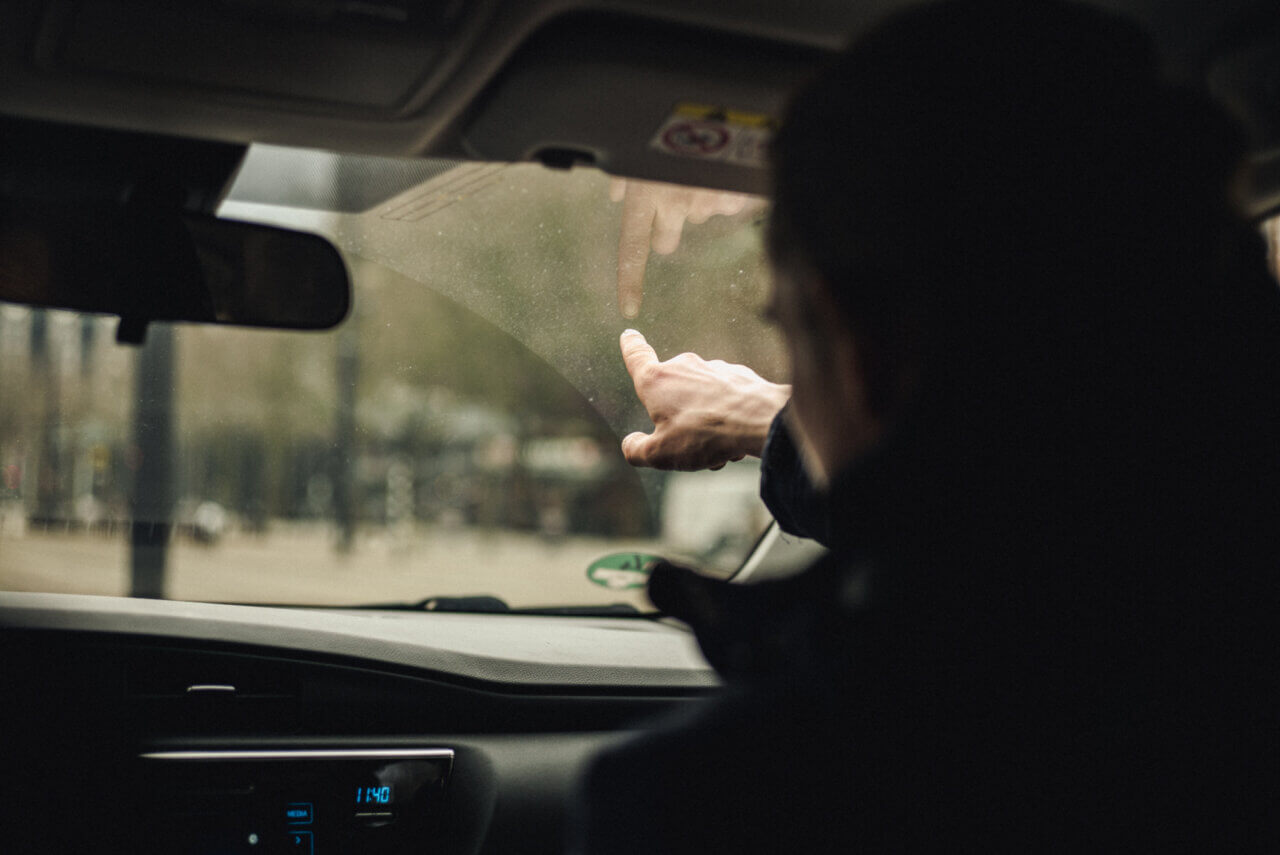
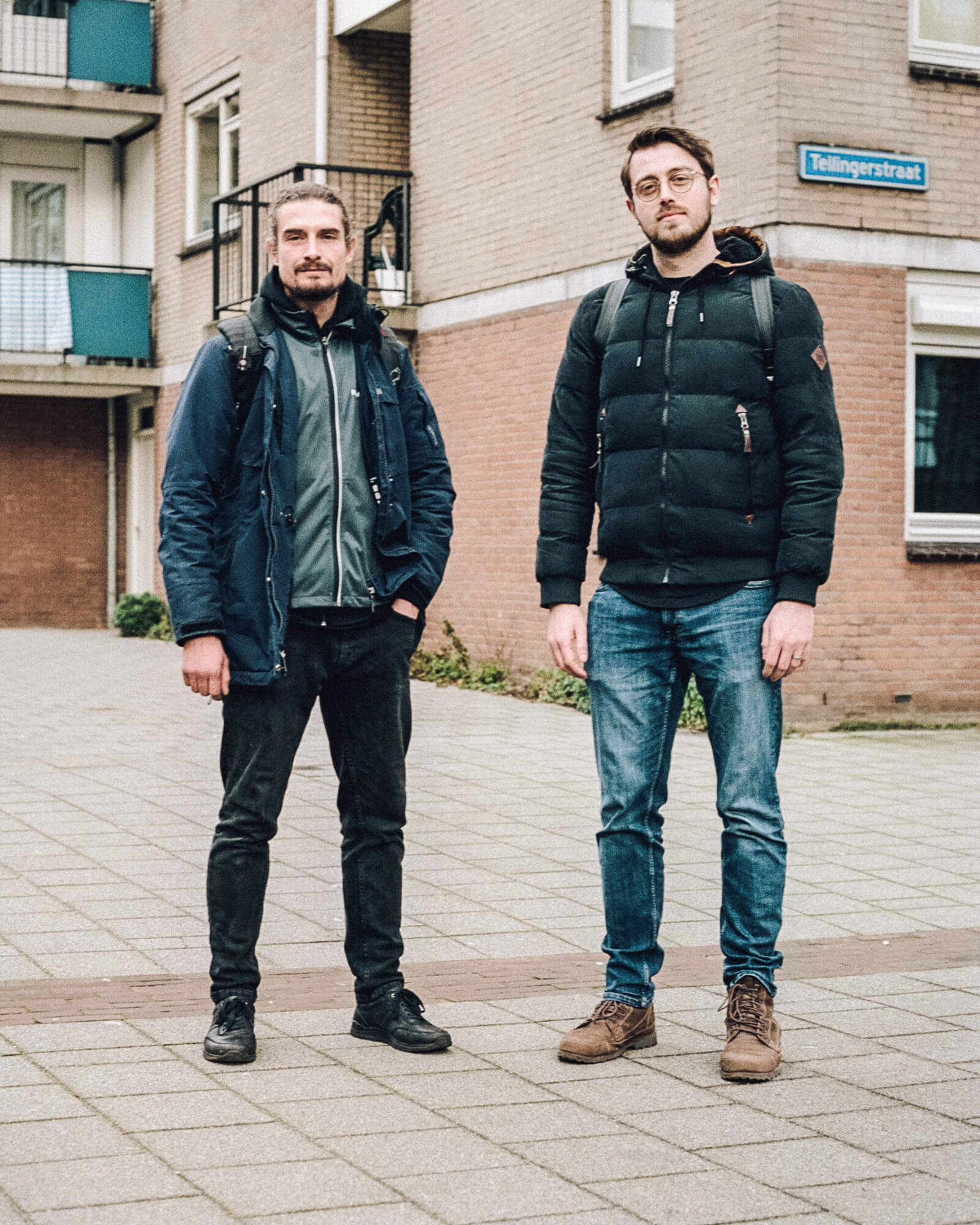
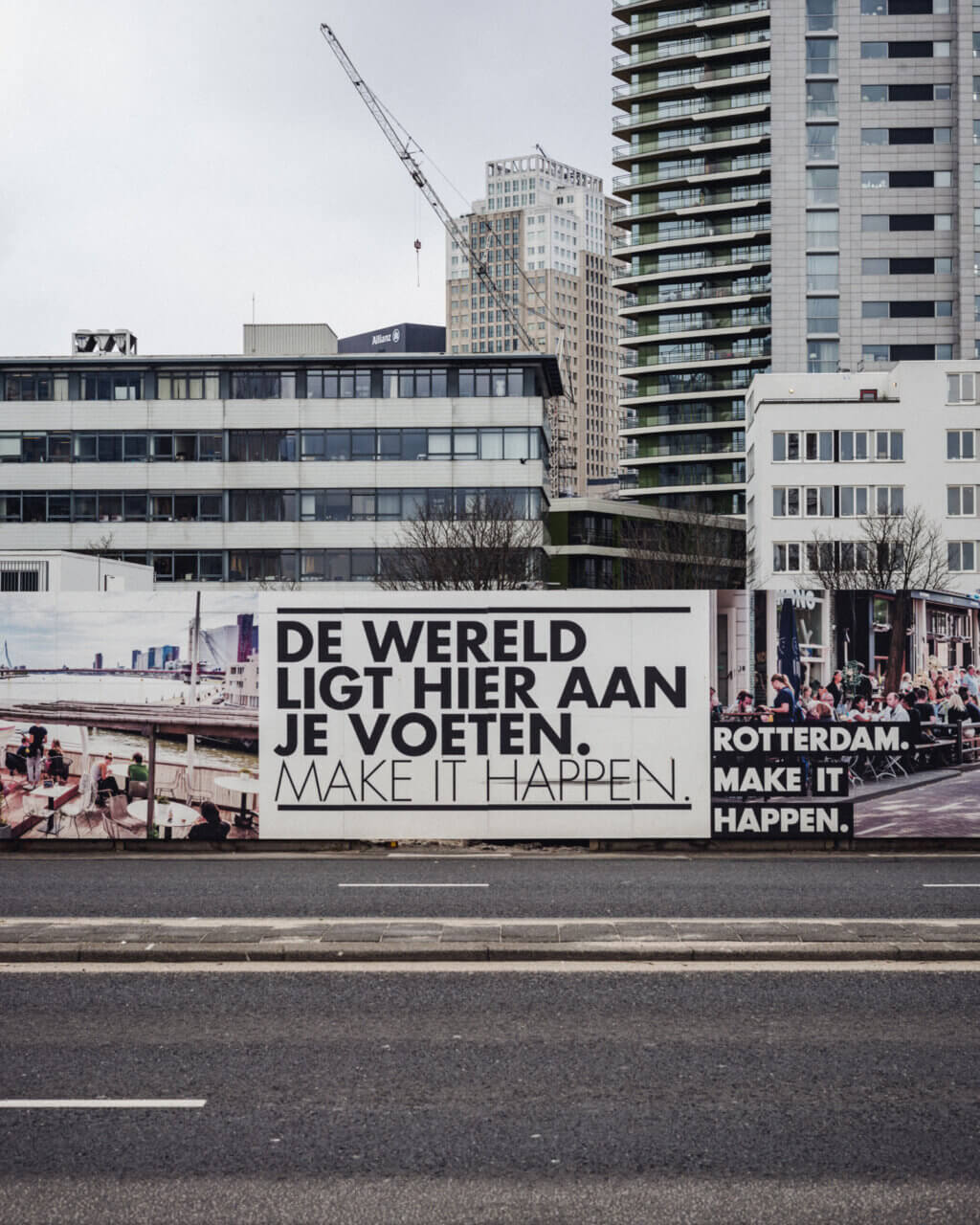
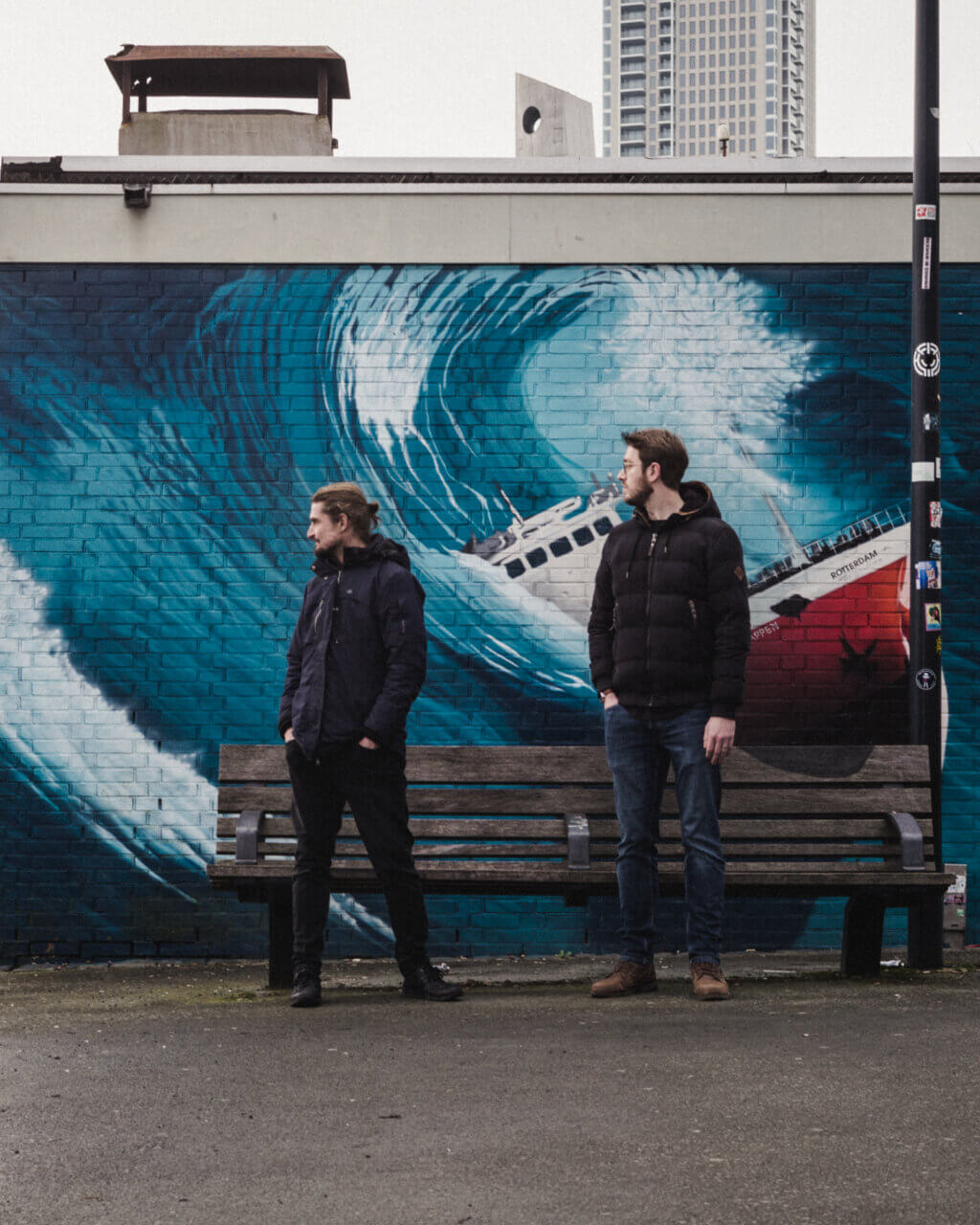
Last October, Bob (31), a field worker at NAS Rotterdam since 2019, saw Dennis sitting outside on a bench. „I didn’t know him yet, but he didn’t look well. He had a small sleeping bag with him, so I asked if he slept outside and offered him a Sheltersuit. That initial contact led to Dennis moving in with us, and that we’re now sitting in his own flat.“
At that time, Dennis slept outside for eight weeks straight. „I had just been clean for three months and ended up in a shelter with a lot of drug use. I lasted two weeks and then I started using again. But it’s never other people’s fault, I’ve learned that. I decided I’d rather sleep outside, by myself. At that time there were no available beds in other shelters, everything was full. After eight weeks non-stop on the streets, I really wasn’t doing well.“
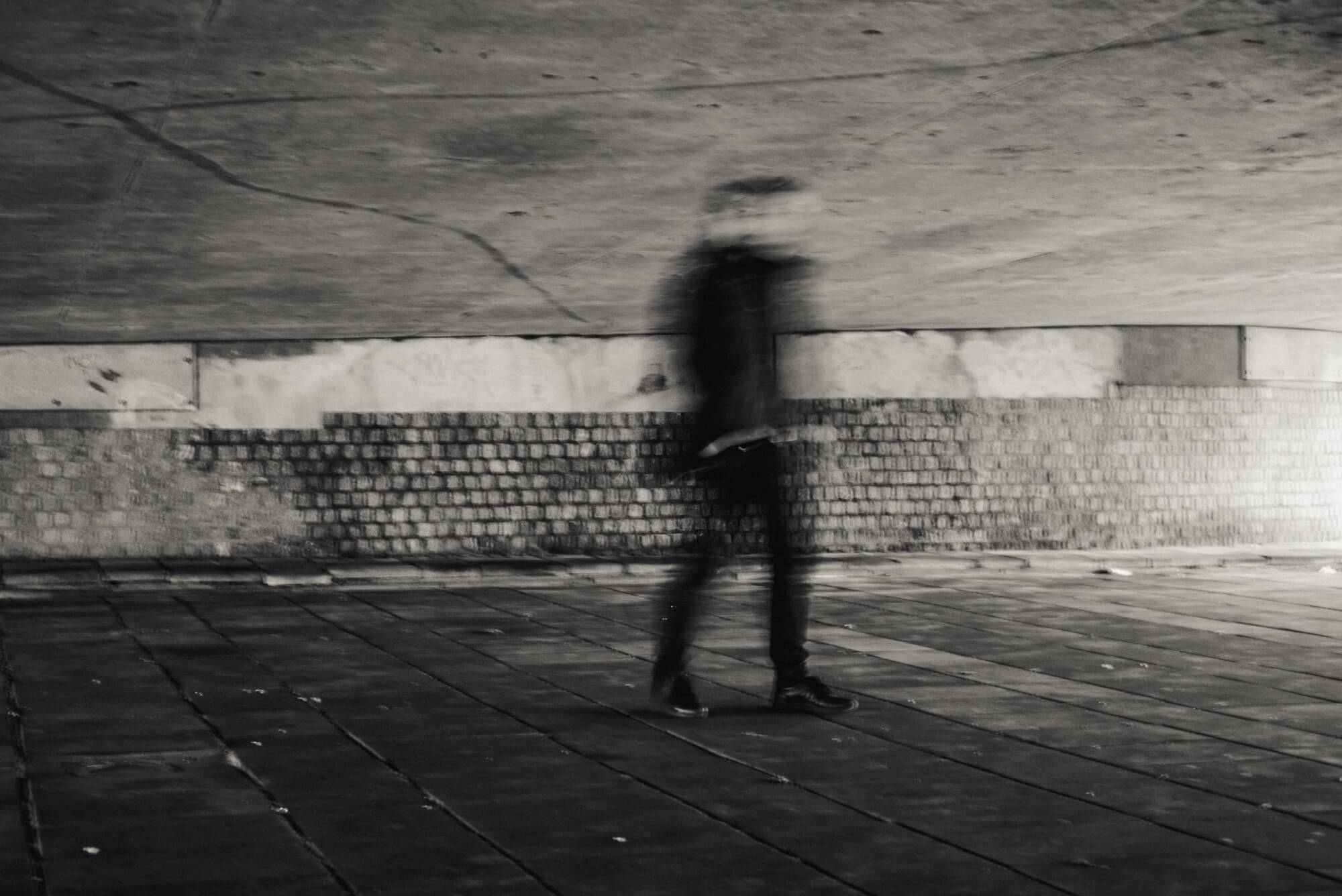
Bob explains how NAS works. First, they look at who they’re welcoming. What kind of person is it, how does he fit into the group? That went well and NAS was able to offer Dennis a permanent spot, which basically means a reserved bed every night.
Dennis slept outside for 8 weeks, but the last time he had his own roof over his head was in 2018. He tells us that his mother died at a young age. That hit hard. He turned to drugs and found himself on the streets when a relationship broke up. „I met a girl and blinded by love I gave up everything, and moved in with her. But when the relationship didn’t work out, I found myself on the streets.
Partly because of my addiction, things went south rapidly. Once you end up on the street, you start using more. Whenever my situation hit me, I got really scared inside. I felt ashamed, and really sad because I didn’t see my family. And then I just wanted to numb it so I didn’t have to think about being homeless. I don’t want to talk about it too much because it’s uncomfortable, but I do want to be honest about it. I think it’s better to be open about it, and say out loud that I want to kick the habit.“ – Dennis
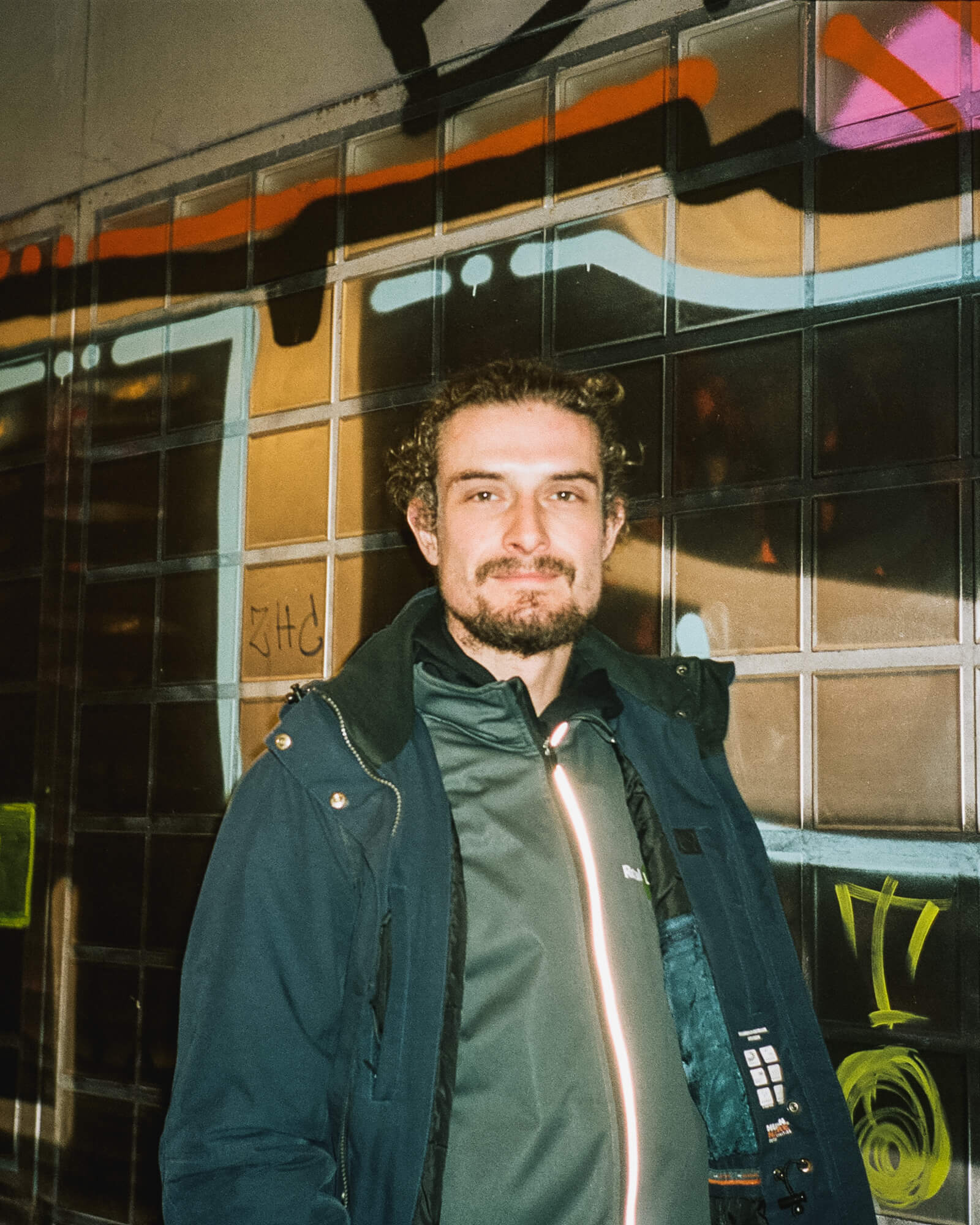
At the NAS, field beds are unfolded in the evening and everyone, about 18 people per night, has a permanent spot. Because there are no bunk beds, there is more room to move around and also a bit more privacy.
Dennis: „The first two nights inside, you really notice that your body is exhausted. It is even difficult to sleep then. But I had no trouble switching to the indoor rhythm. I do like being on my own and that takes some adjusting.„
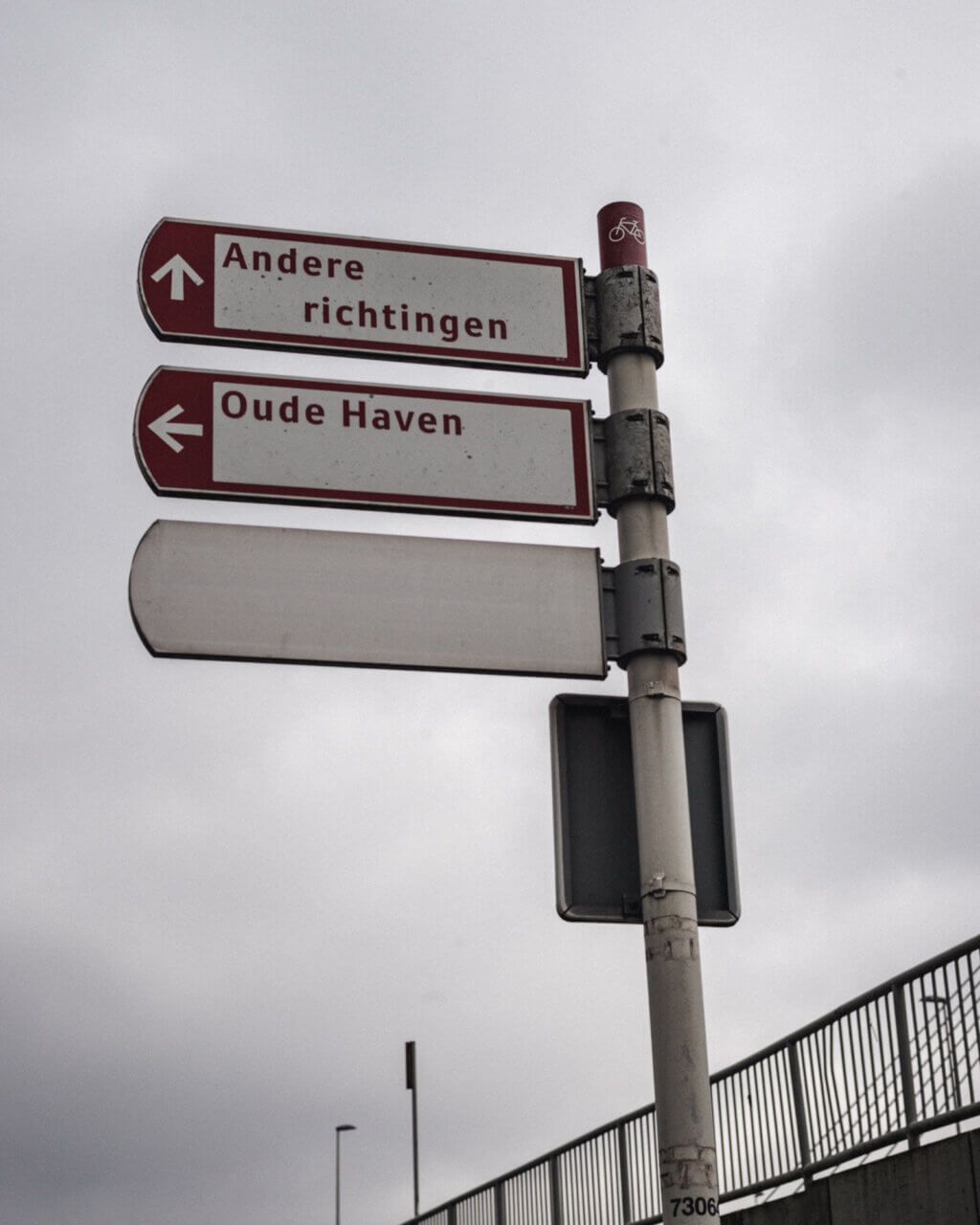
Bob
It is clear that the personal attention and small-scale approach that is offered at NAS, has really made a difference to Dennis. It is not a given that a social worker is always there for you, and goes the extra mile. In the few months that they have known each other, Bob and Dennis have become close. And that is almost certainly due to Bob’s own experiences. As a teenager, Bob was homeless in the Netherlands. It was an intense period that prevented him from going to school and caused him to travel all across the Netherlands. He knows what it is like to be cold and unsure of where to spend the night. If it were up to him, nobody should have to go through that. Bob has been working as a social worker in the outreach team at NAS for 2.5 years and will complete his bachelor’s degree in Social Work at Rotterdam University of Applied Sciences in June this year.
„The Sheltersuit is extremely useful as a practical tool. It puts words into action.“
– Bob, NAS
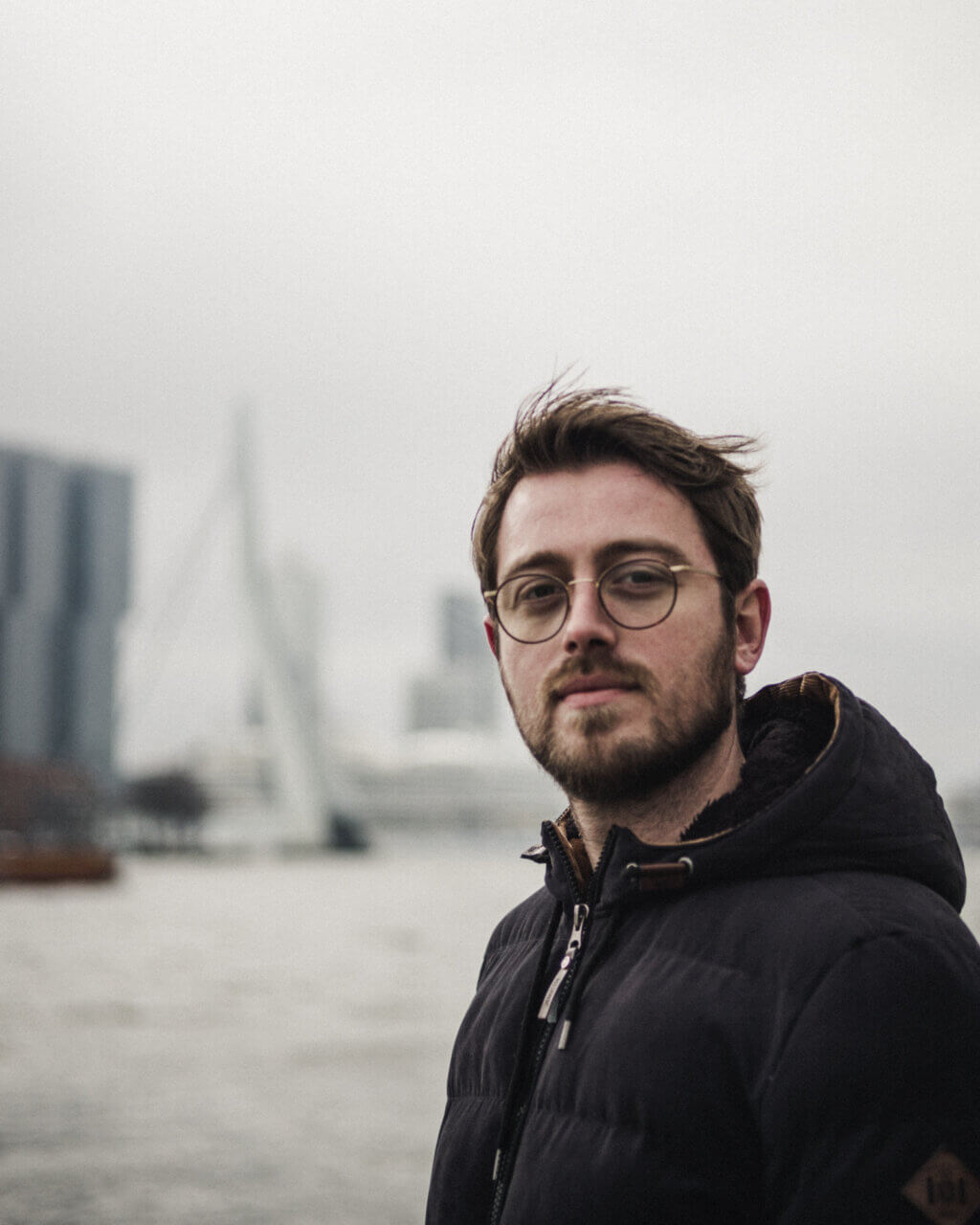
What is striking about the policy of NAS is the importance of offering a future perspective. Because NAS functions independent of the municipality, more personal help and no-obligation contact can be offered to motivate the relief efforts. „That’s why the Sheltersuit is so useful as a practical tool, it puts words into action,“ says Bob. „I want to help you, and here’s something. If people see that you mean what you say, don’t just talk the talk, and keep coming back, they’re more likely to take steps with you. Our main task is to build a relationship of trust so people know that if something is wrong, they can always come to us.“
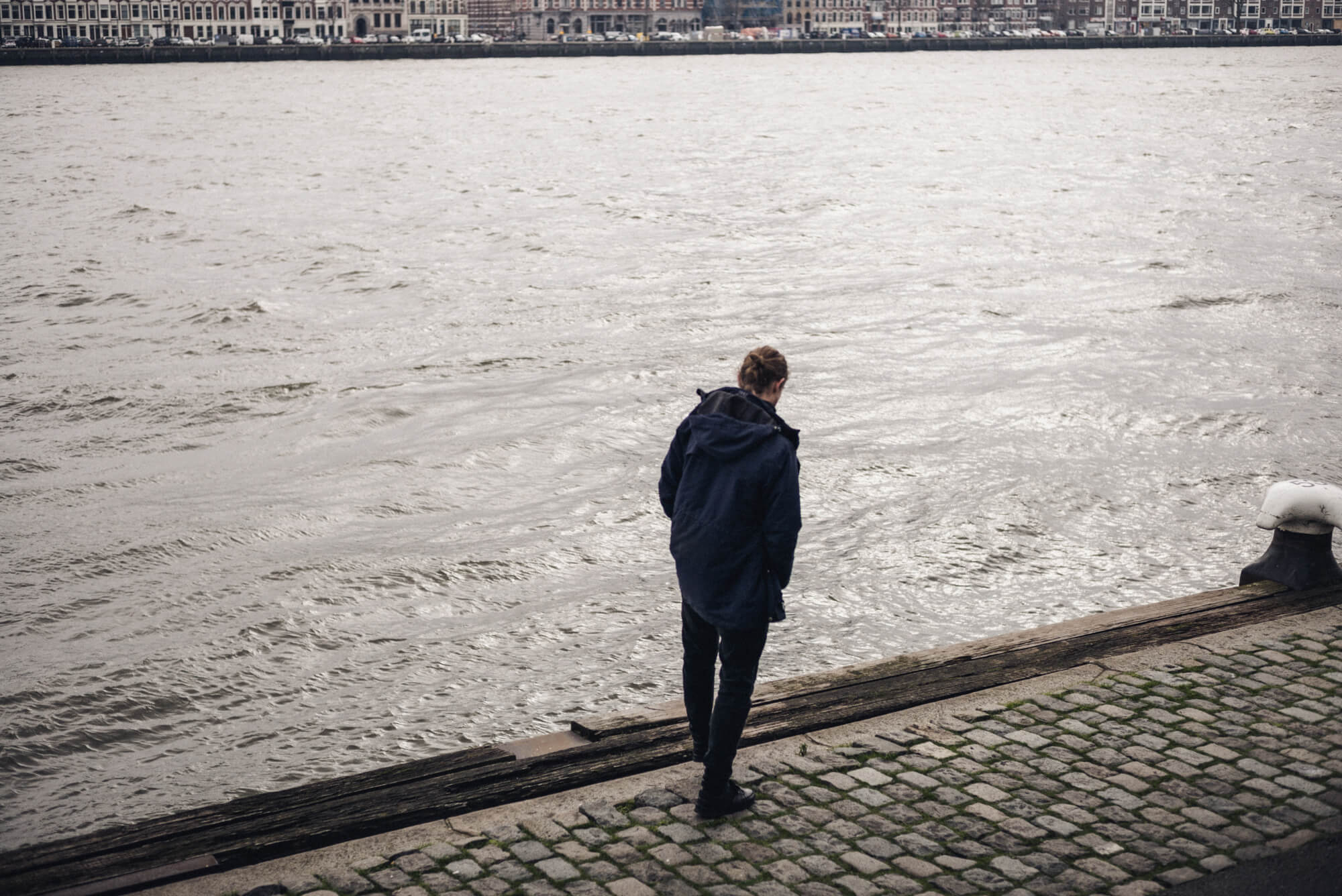
„You are here to develop yourself. To move on. We are here for you, but we are also going to look at what happens next.“
– Peter, NAS
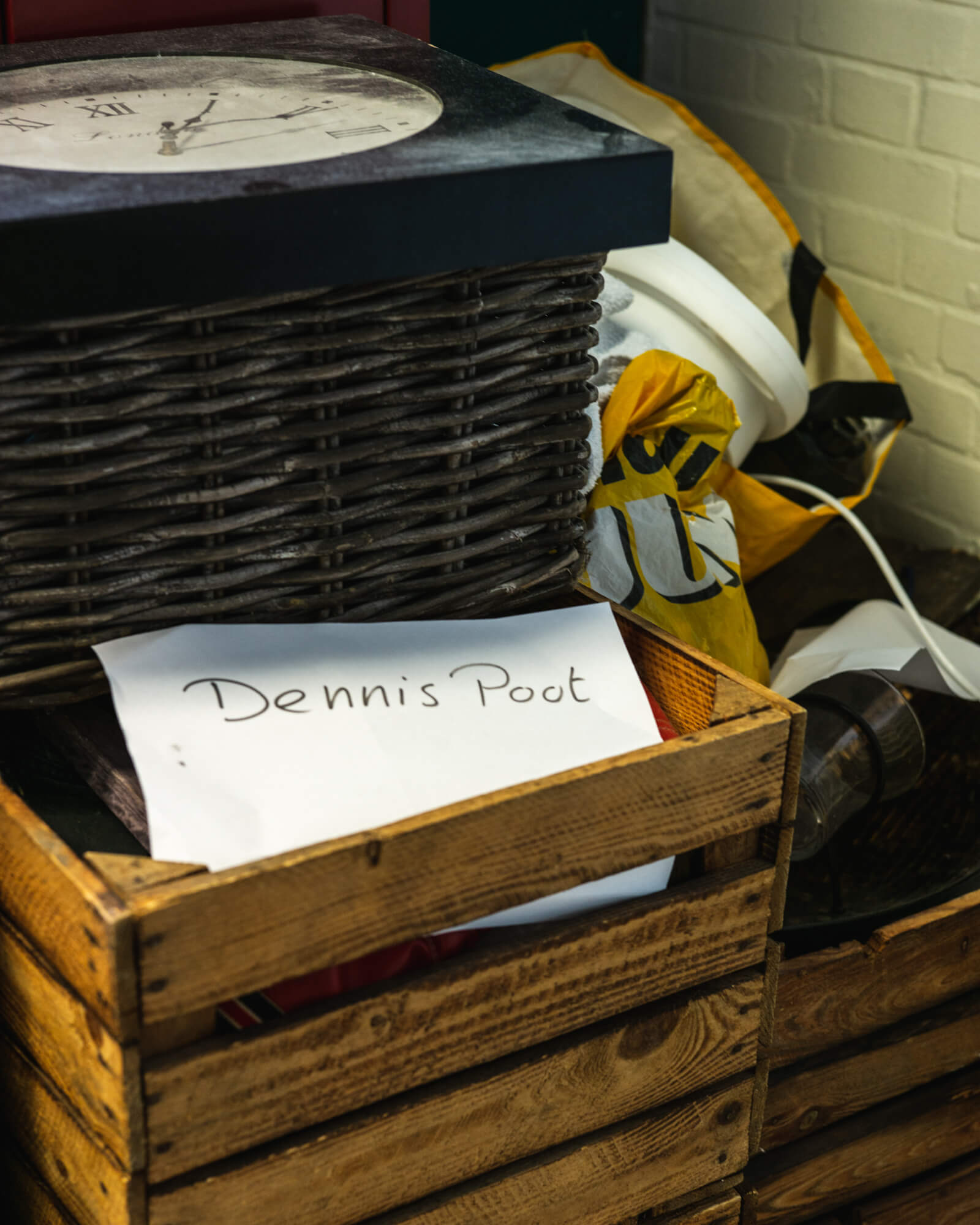
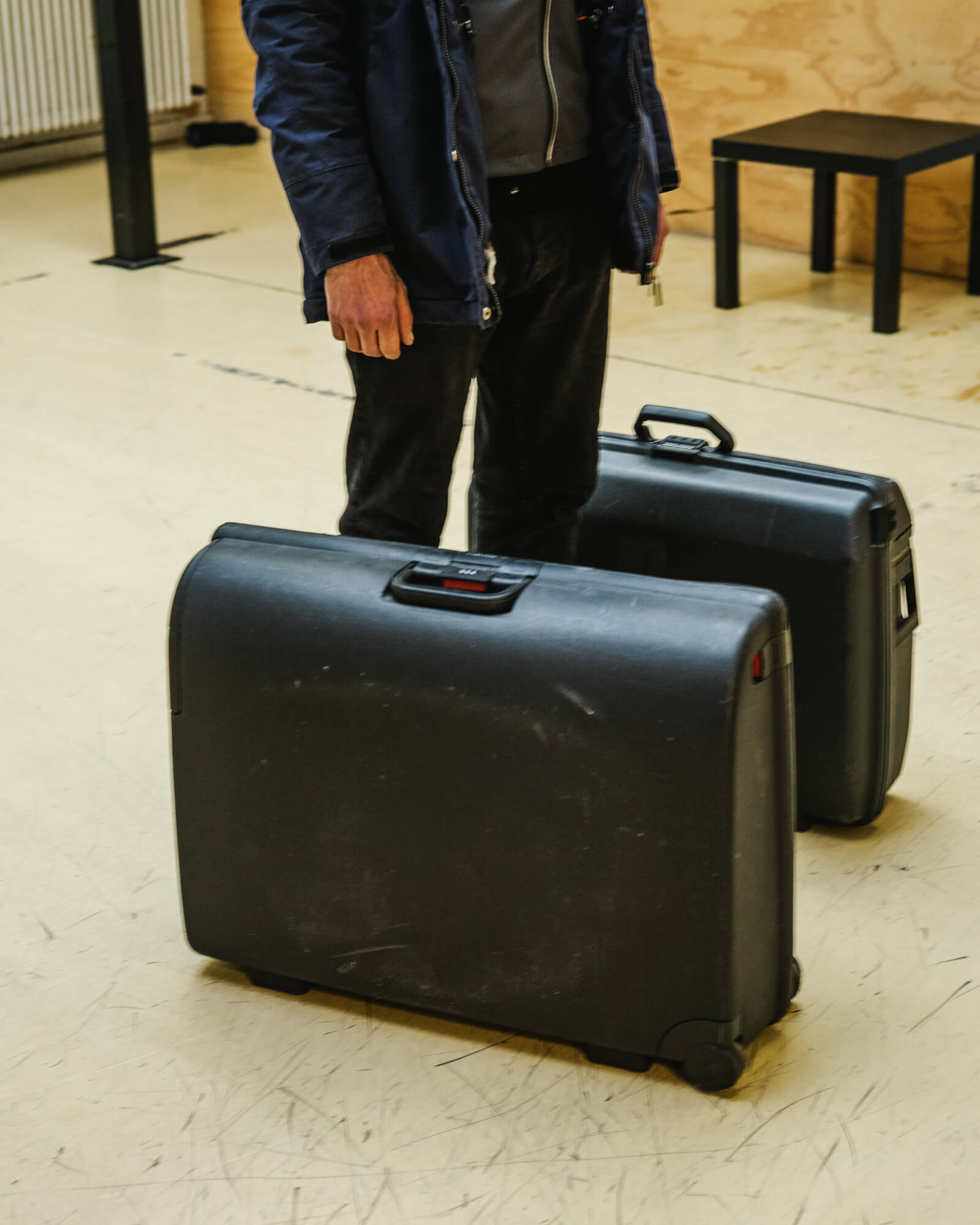
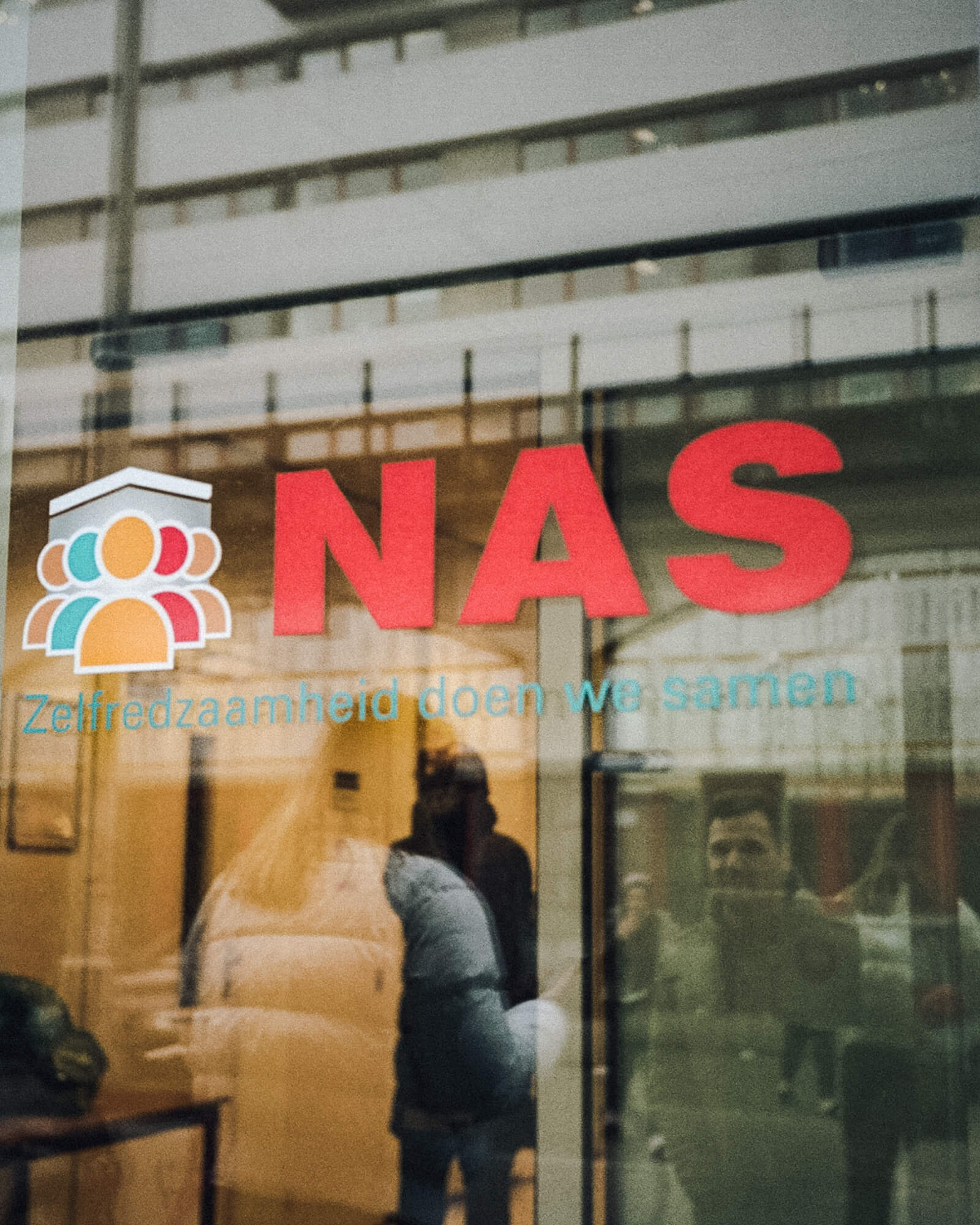
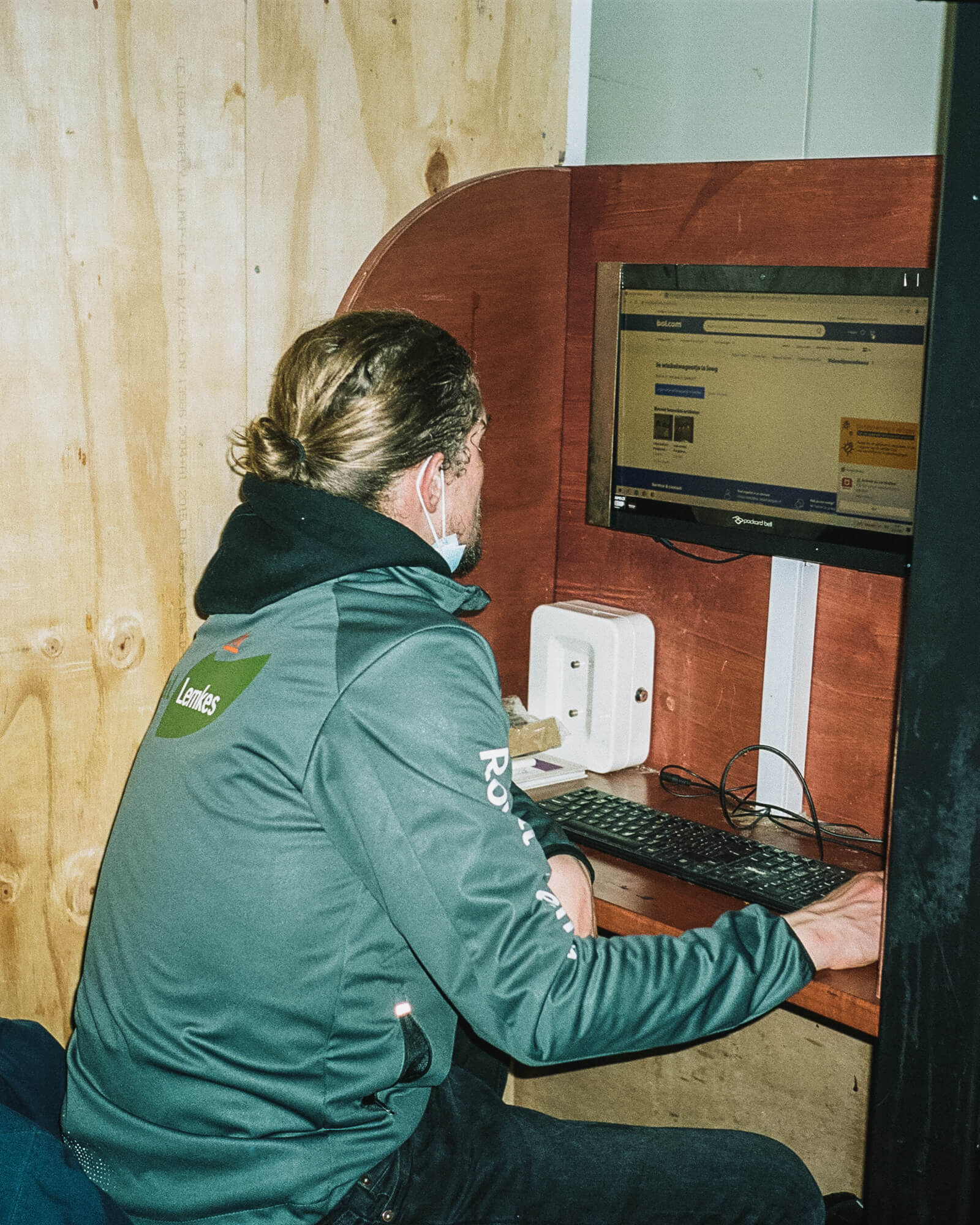
Housing First
Housing First helps homeless Rotterdammers with multiple problems, who cannot or do not want to make use of the existing shelter, to quickly find their own rental home.
Once Dennis was known to NAS, Bob picked it up, applied for Housing First, and budgeted for furnishing the house. The arrangements are tough and NAS helps with that. There are three conditions that someone must meet: pay the rent, not cause any nuisance, and open the door for supervisors. First, NAS becomes the tenant, and if things go well for a year, the contract is converted into Dennis‘ name.
The approach, originating in the US, has already led to successful results in various cities in the Netherlands. In Rotterdam, various care providers such as NAS, the Salvation Army, and the city of Rotterdam are working together to make Housing First a success. This year 50 homes have been made available for the Housing First program in Rotterdam.
„I was standing outside and thought, am I dreaming?
-Dennis
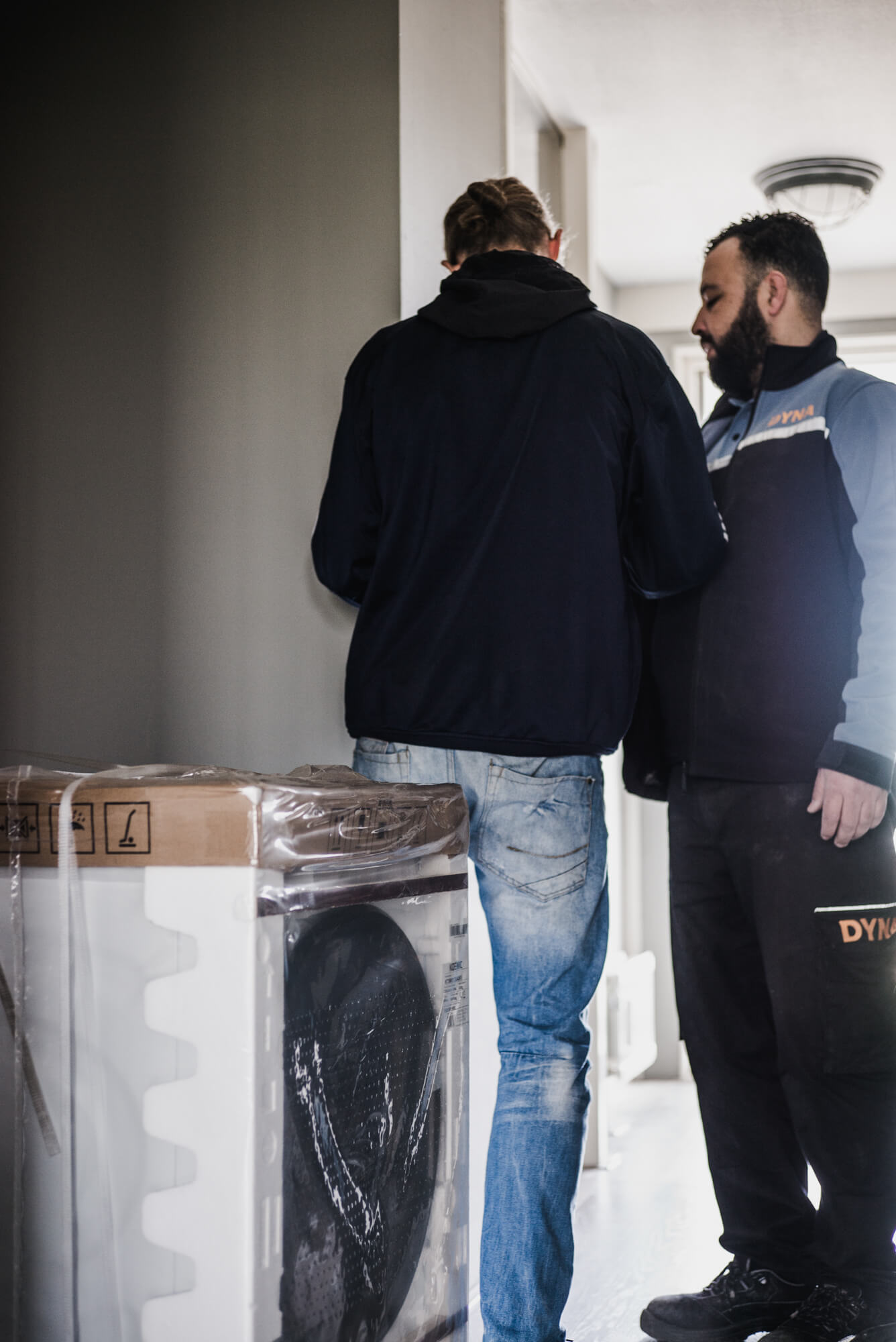
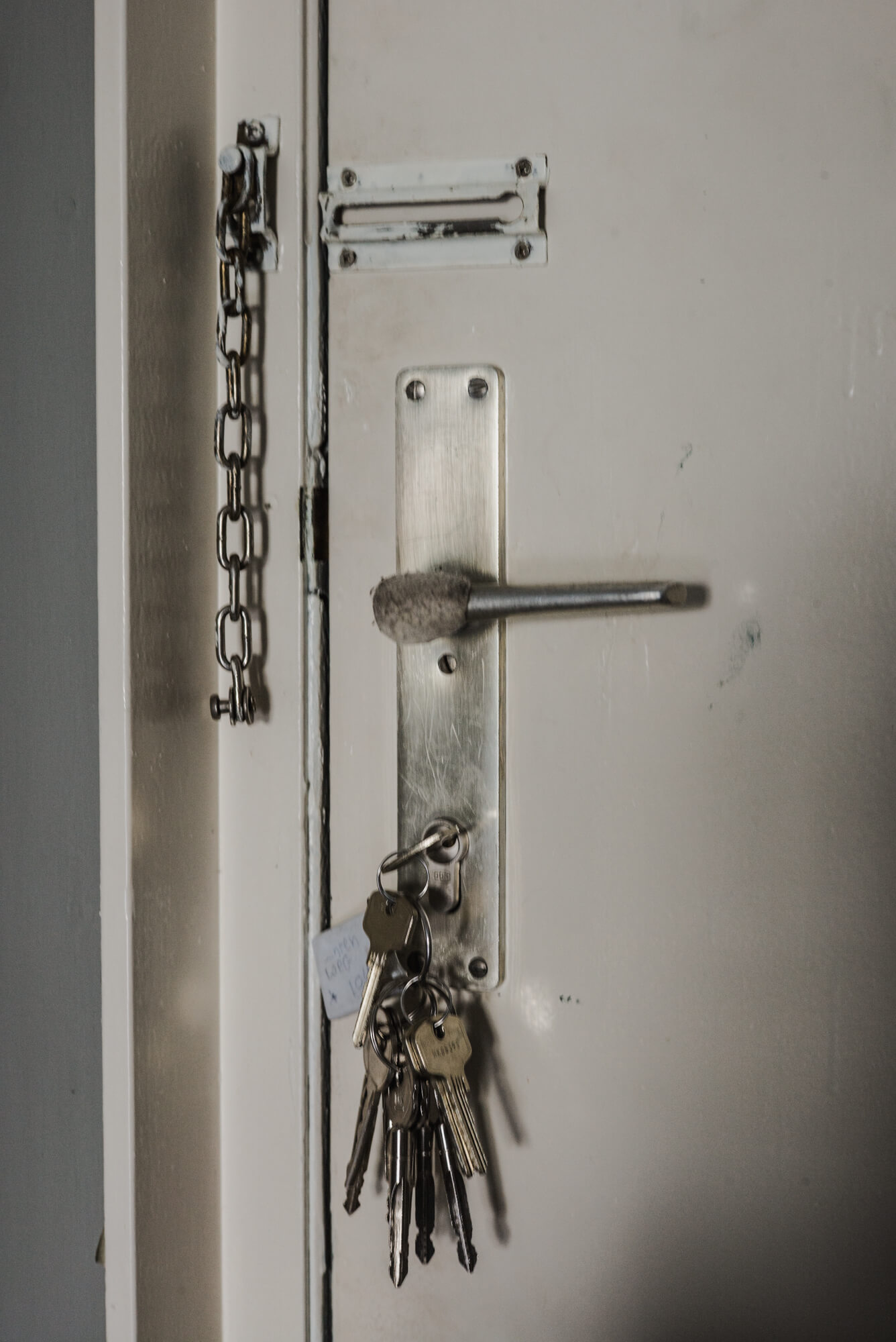
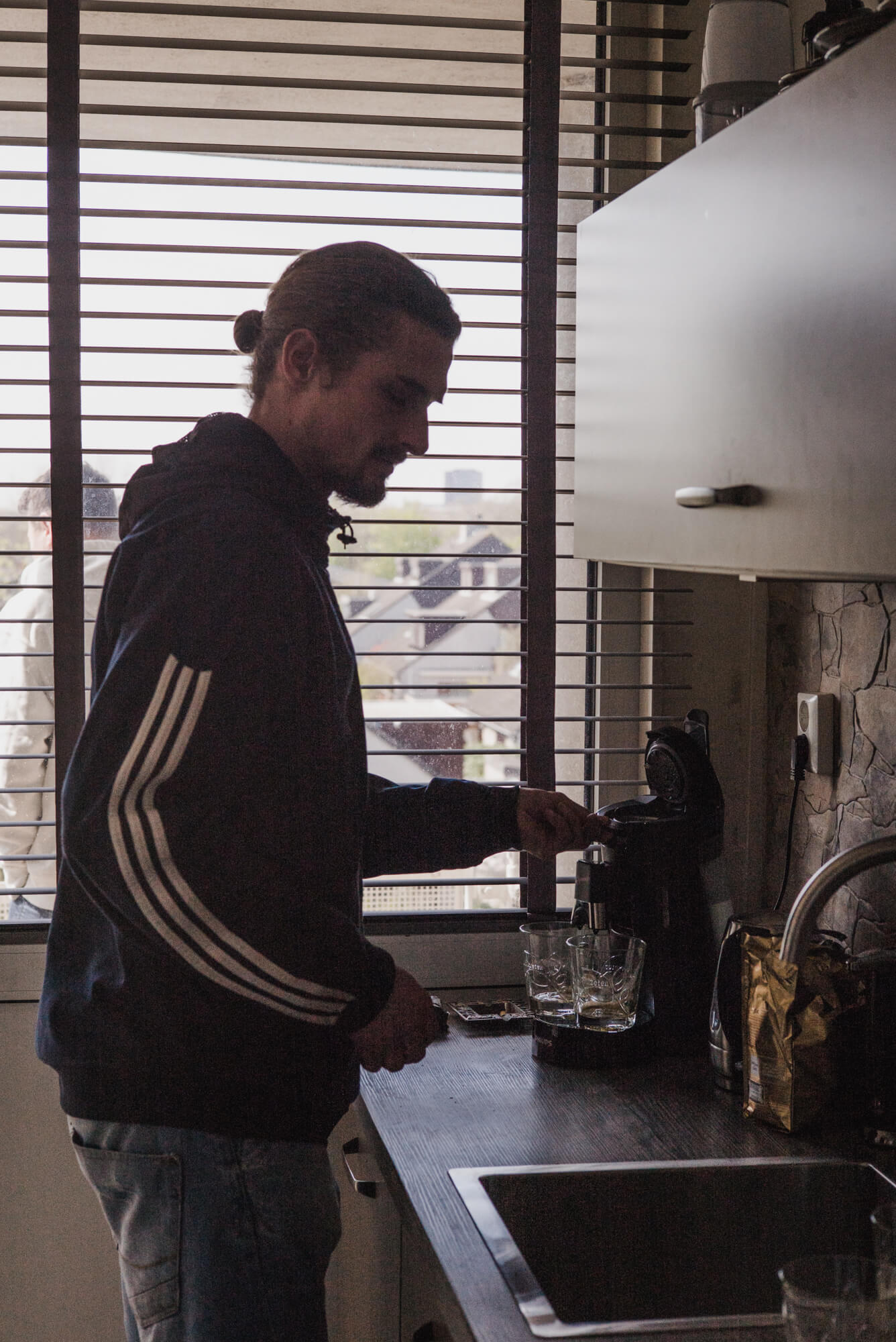
The first week in his new home
While he is making us coffee with the balcony door open, Dennis says: „For me, the most special moment was when Bob called me into the office with the news that I was getting a house. He had actually lured me in with something else, that I had to sign something for the storage of my things. Then suddenly they said: ‚you’re selected.‘ I didn’t feel anything at first, but when I got outside I thought, am I dreaming? Progress is finally in sight. I really want to stop using drugs and now that I have my house, I’m going to stop using under supervision. Now I sometimes think… maybe it all just had to be like this, meeting Bob, NAS, and now my own house.
What I missed most was a moment to myself. I often went outside so I could be alone, but I didn’t have a place to retreat to. Rest, and a decent breakfast. Decide when you go to sleep. I am a real family person, but I had nowhere to receive family because I was homeless. So I was really looking forward to that. When my sister came to visit me this week, she cried. Well, then I got emotional too.
I would really like to do something for myself now that I have my own house. I know Rotterdam so well by now, that I know places where high-quality furniture is put out with the trash because people pass away or students move all the time. I fix them up and sell them. Starting small and building up slowly… I would like that very much. But that’s quite a responsibility, and first I have a lot of other things to do, like stabilizing, getting off drugs, and finding myself again. And now first make my own little home.“

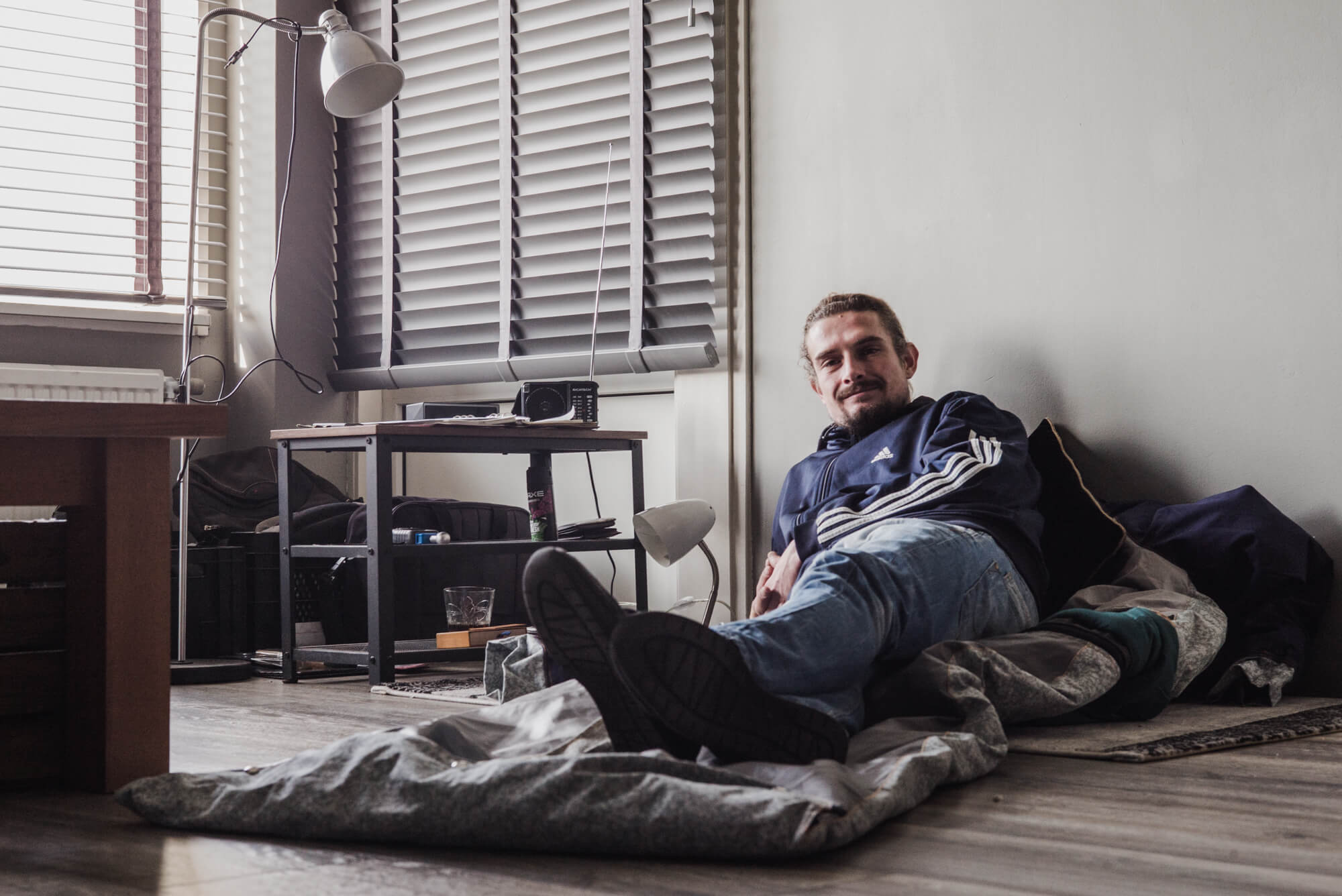
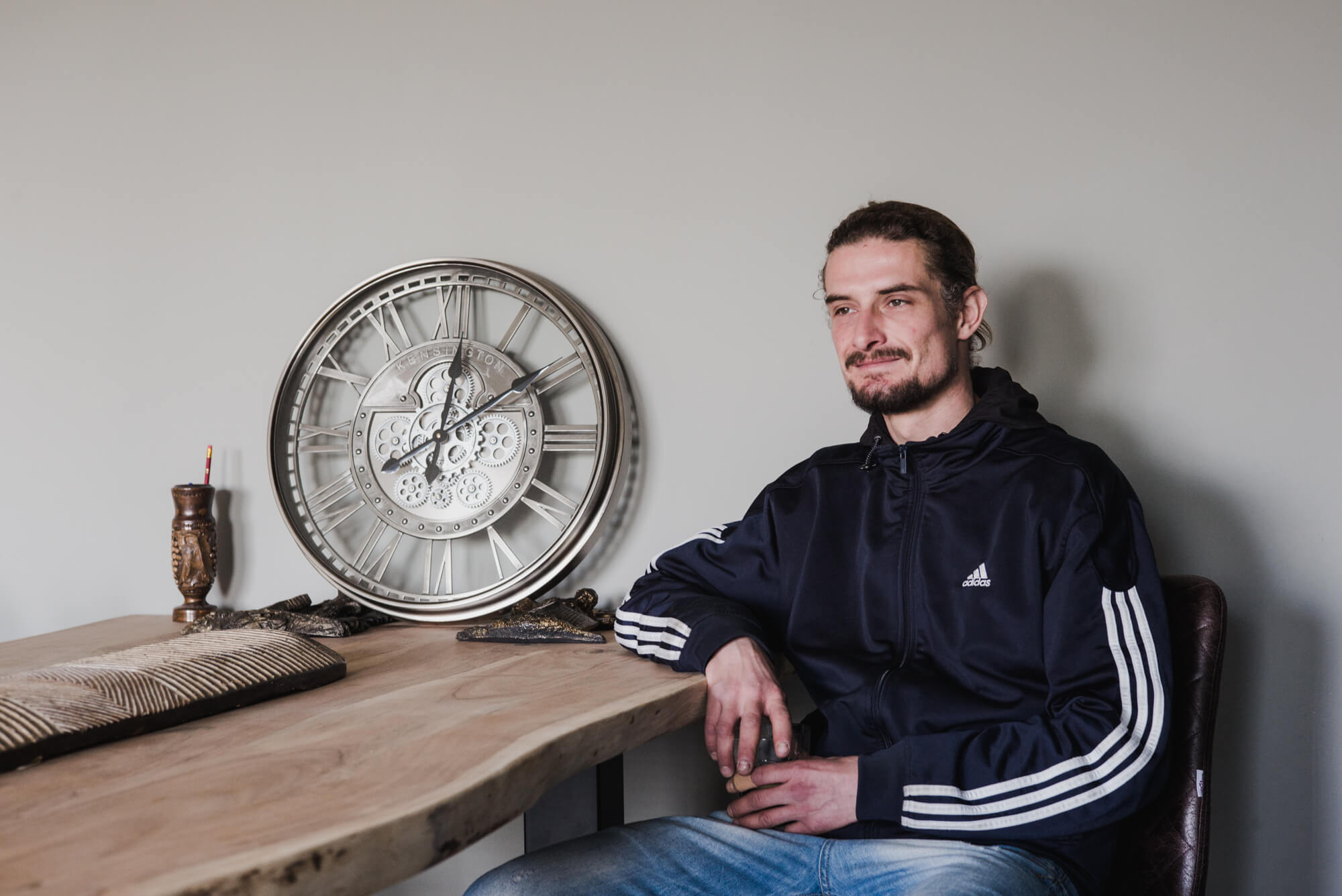
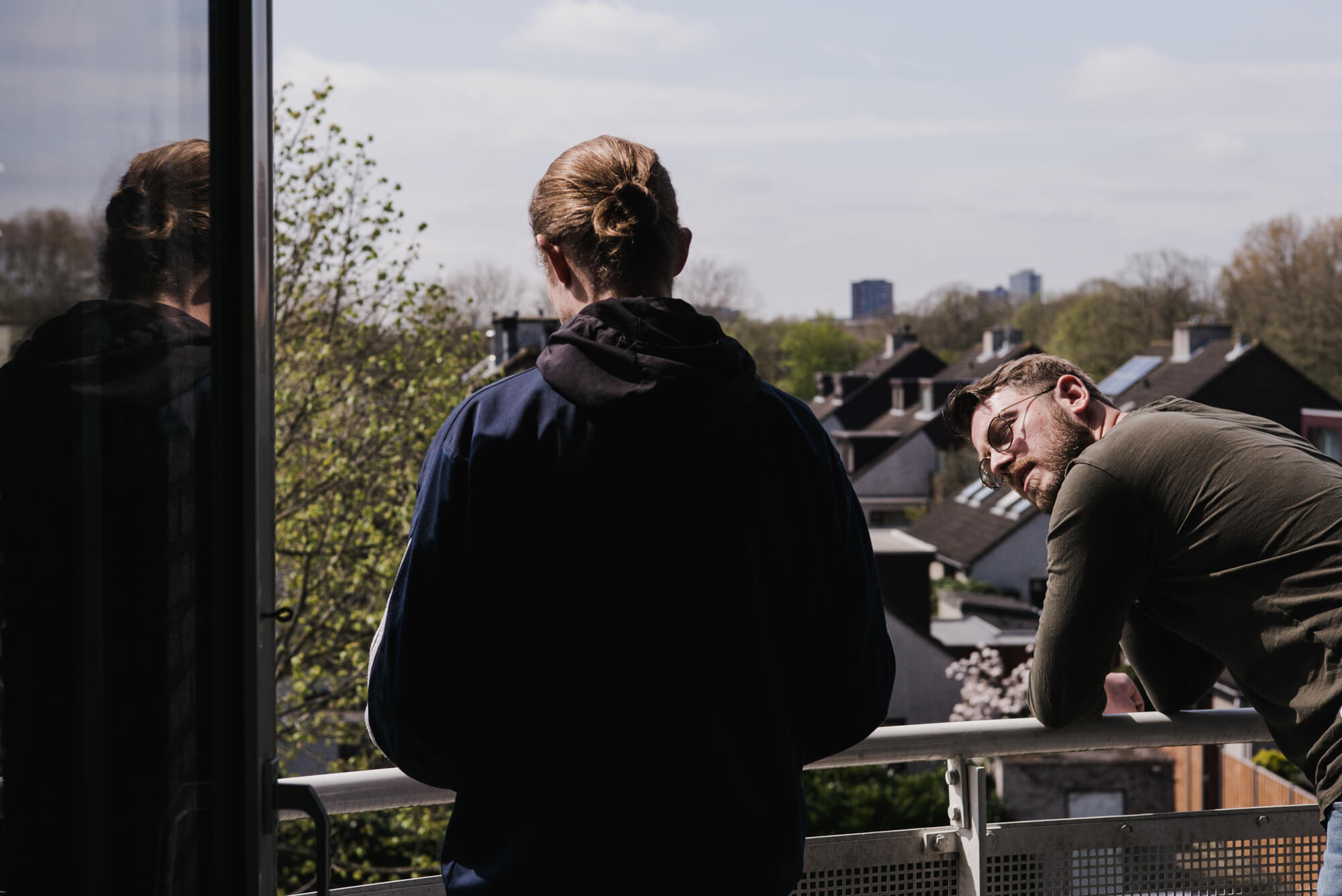
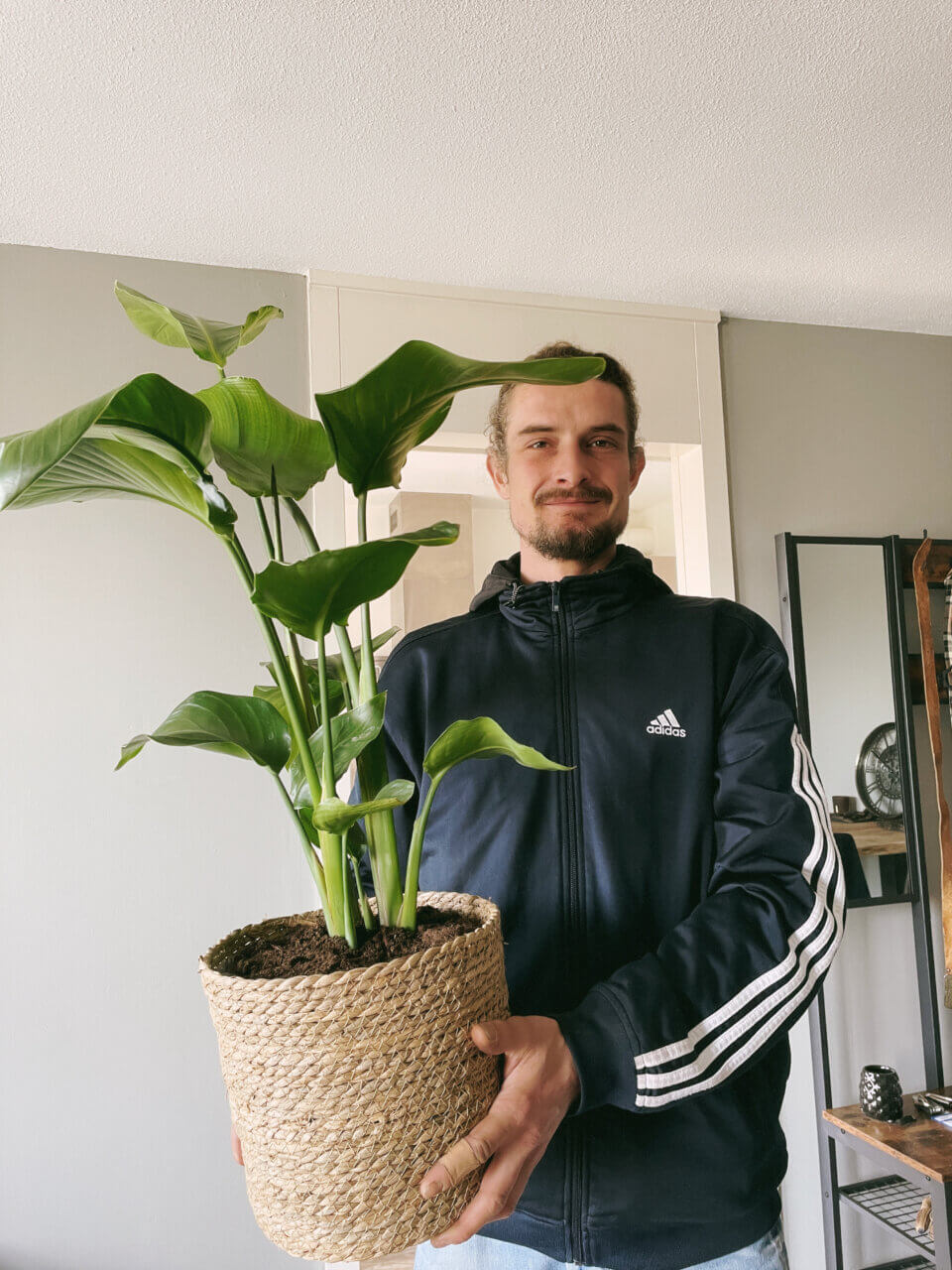
„When my sister came to visit me this week, she cried. Well, then I got emotional too.“
– Dennis
Ihre regelmäßige Spende ermöglicht es uns, weiterhin langlebige Sheltersuits zu produzieren, mehr Arbeitsplätze zu schaffen und den Bedürftigsten Wärme und Würde zu geben.
Für dieses fortlaufende Projekt beschäftigen wir uns mit unbehausten Gemeinschaften in verschiedenen Städten. Der intime Dokumentarfilm spiegelt das Auseinanderbrechen der Gesellschaft wider und legt das gleiche Maß an Stärke und Verletzlichkeit jedes seiner Charaktere offen.
Indem wir diese rohen Momente in einem neuen Licht festhalten, fordern wir die Mainstream-Darstellung einer wachsenden, vergessenen Gruppe heraus. Es erinnert uns daran, dass Menschen, die Obdachlosigkeit erleben, weder etikettiert noch missachtet werden sollten. Jeder hat eine Geschichte zu erzählen.